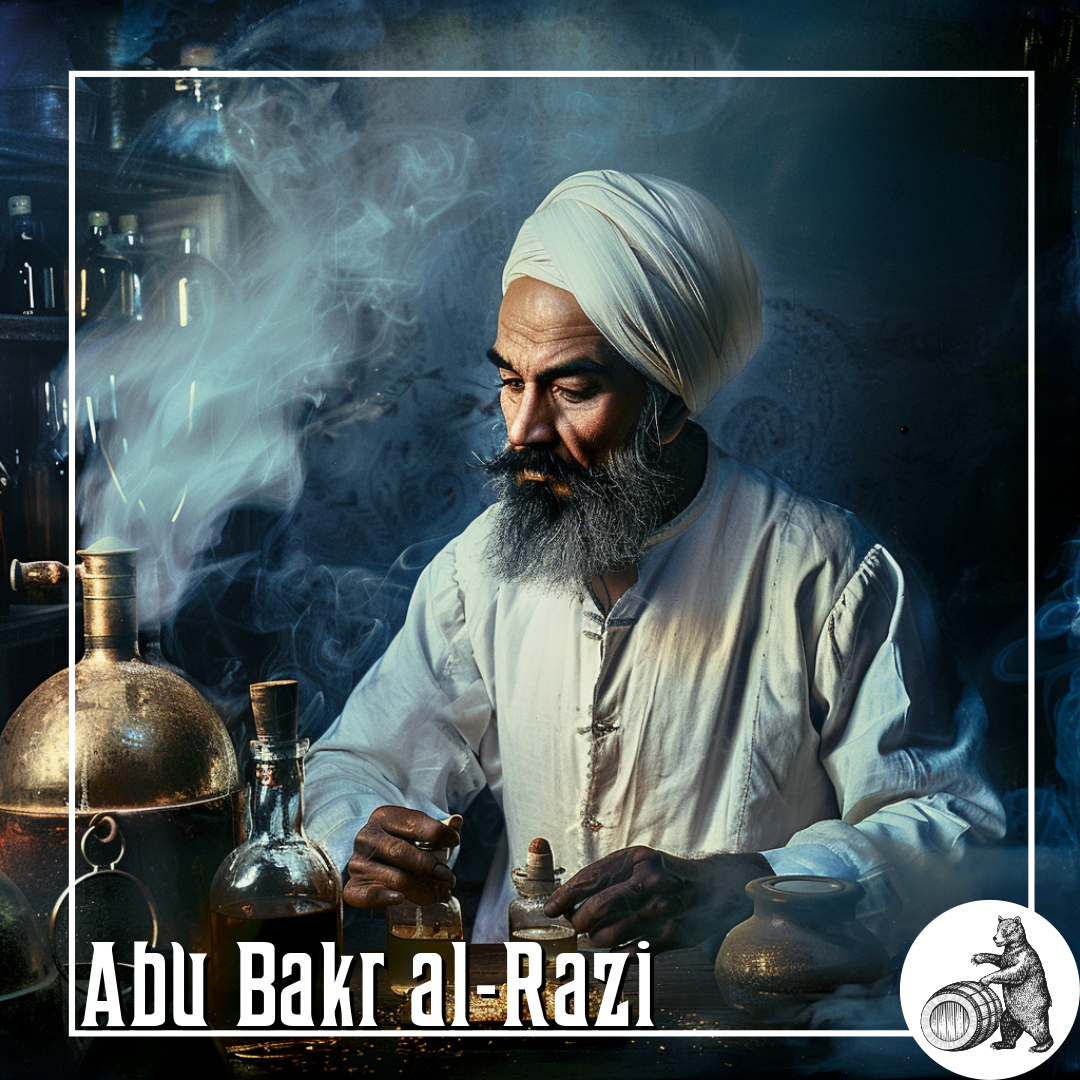Abu Bakr al-Razi
The Pioneer of Distillation
Alcohol had been known for centuries as a component of wine and beer. However, Rāzī’s alchemical approach to distilling wine aimed at separating its “natures,” leading to the discovery of pure alcohol (ethanol). While his focus was primarily on the medicinal applications of alcohol, this discovery was a significant step in the development of distillation techniques.
The early Middle Eastern alchemists, including Rāzī, were not initially aware of the full value of their discovery. They were more interested in isolating the “quintessence,” or the fifth element of Aristotle, from wine, without an immediate practical application for their findings. However, they did recognize the value of distillation in separating etheric oils, such as in the creation of “Rosewater,” which had immediate use and commercial value.
Although Rāzī was distilling alcohol from wine, it would take about 300 more years of refinement for the process to reach consumable standards. The earliest evidence of drinkable alcohol, referred to as “aqua ardens,” is found in Southern Italy in the 12th century, indicating the gradual improvement of distillation techniques over time. Rāzī’s work in distillation laid the foundation for future advancements in the field, and his contributions continue to be recognized and studied in the modern era.

